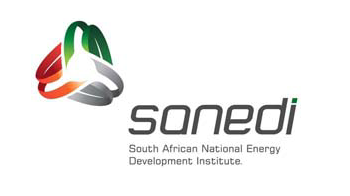
Cool surface technology offers an immediate, direct and inexpensive solution to South Africa’s strides towards an economy built on clean energy, says SANEDI (South African National Energy and Development Institute).
Through this technology, the environment benefits from a passive-energy cooling solution that includes cool roofs, cool walls and cool roads. Indeed, cool surfaces offer answers that demonstrate impact at various scales, industry and users.
National rollout and interventions
“At SANEDI, we are encouraging South Africans to manufacture cool coatings for roofs, walls and roads, establishing new industries and job opportunities. A national rollout of cool surfaces will greatly aid government in not only alleviating pressure on the grid – as a passive energy solution – but also create much-needed local economic development manufacturing and employment opportunities.”
Additionally, cool surfaces support government’s drive to achieve multiple mandates. Cool roads for example can assist the Department of Transport to reduce the need for road maintenance and tyre damage, as it significantly reduces the surface and ambient temperature (of roads), effectively extending its lifespan.
“Cool surface technology can assist the Department of Trade and Industry in the revival of the economy, which includes a product lifecycle from manufacturing, testing to distribution and application. The Department of Human Settlements can benefit from a low-cost intervention that increases the standard of low-cost living, reduces energy costs and limits subsequent maintenance.”
Urban benefits
In urban areas, SANEDI’s Cool Surface projects provide coating application training to local communities and partner departments, particularly those suffering from high unemployment. Successful graduates are offered paid jobs as supervised interns during project deployment and bring back invaluable experience to their own communities.
“The deployment of cool surface technology also greatly improves urban air quality, reducing energy and health costs. It reduces the urban heat island (UHI) effect as it cools the ambient temperature over cities, providing resilience to heat events and climate change,” comments Lundall.
An UHI is a metropolitan area that is a lot warmer than the immediate areas surrounding it. Heat is created by energy from people, cars, buses, and trains in big and densely populated cities. These UHIs usually have worse air and water quality than its immediate neighbours and night-time temperatures remain high.
On an individual building scale, cool surfaces improve the thermal comfort of occupants in buildings without mechanical air-conditioning, like some schools, warehouses, homes and factories. “The technology improves health and productivity, saving on medical bills and reducing absenteeism from work and schools. Also, it substantially reduces the cost of building maintenance as it is waterproof, fire retardant, inexpensive, low-tech and quick and easy to deploy,” concludes Lundall.
Ends
About SANEDI
The South African National Energy Development Institute (SANEDI), is a Schedule 3A, State Owned Company, Established by the Government to direct, monitor and conduct applied energy research to develop innovative, integrated solutions to catalyse growth and prosperity in the green economy. It drives scientific evidence-driven ventures that contribute to youth empowerment, gender equity, environmental sustainability, and the 4th Industrial Revolution, within the National Development Plan (NDP), through consultative, sustainable energy projects. For more information, go to www.sanedi.org.za.
More news
- STATE-DRIVEN OPPORTUNITIES FOR SA CONSTRUCTION COMPANIES BUT MANAGING RISK IS A PRIORITY
- PART 4: SA’S TRADE DILEMMA: A PODCAST DISCUSSION WITH DONALD MACKAY
- CONCOR KICKS OFF OXFORD PARKS BLOCK 2A PHASE I PROJECT
- PART 3: SA’S TRADE DILEMMA: A PODCAST DISCUSSION WITH DONALD MACKAY
- MBA: ‘HOW CONSTRUCTION FIRMS SHOULD PREPARE FOR THE WORST’

